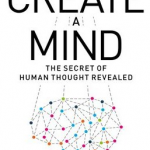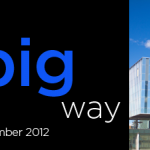Free Thought
Another list for your reading, gift-giving and collection development pleasure.
Every year for the last bunch of years I’ve been linking to and posting about all the “year’s best sciencey books” lists that appear in various media outlets and shining a bit of light on the best of the year.
All the previous 2012 lists are here.
This post includes the following: The Globe and Mail 100.
The Last Viking: The Life of Roald Amundsen by Stephen R. Bown
Survival of the Beautiful: Art, Science and Evolution by David Rothenberg
Turing’s Cathedral: The Origin of the Digital Universe by George Dyson…
College, Reinvented: The Finalists
Napster, Udacity, and the Academy
Is the death of newspapers the end of good citizenship?
MOOCs and the Future of the University
Survival of the Fittest in the New Music Industry
The Stanford Education Experiment Could Change Higher Learning Forever
How Dead Is the Book Business?
Beyond Literacy and Beyond ‘Beyond Literacy’
Conservatives and the Higher Ed 'Bubble'
Lies, Damn Lies, and Statistics, or What's Really Up With Automated Essay Scoring
Our Napster is Udacity: Quality Doesn’t Beat Access
University of the future: A thousand year old industry on…
Another list for your reading, gift-giving and collection development pleasure.
Every year for the last bunch of years I’ve been linking to and posting about all the “year’s best sciencey books” lists that appear in various media outlets and shining a bit of light on the best of the year.
All the previous 2012 lists are here.
This post includes the following: Brain Pickings.
Internal Time: Chronotypes, Social Jet Lag, and Why You’re So Tired by Till Roenneberg
The Where, the Why, and the How: 75 Artists Illustrate Wondrous Mysteries of Science by Matt Lamothe, Julia Rothman, Jenny Volvovski…
Another list for your reading, gift-giving and collection development pleasure.
Every year for the last bunch of years I’ve been linking to and posting about all the “year’s best sciencey books” lists that appear in various media outlets and shining a bit of light on the best of the year.
All the previous 2012 lists are here.
This post includes the following: Barnes & Noble Best Books 2012: Art, Architecture & Photography; Computer; Medical & Nursing; Professional & Education; .
Life in Color: National Geographic Photographs by Annie Griffiths
Turing's Cathedral: The Origins…
It is time. The season of lists begins again!
Every year for the last bunch of years I've been linking to and posting about all the "year's best sciencey books" lists that I can find around the web in various media outlets.
From the beginning it's been a pretty popular service so I'm happy to continue it.
For my purposes, I define science books pretty broadly to include science, engineering, computing, history & philosophy of science & technology, environment, social aspects of science and even business books about technology trends or technology innovation. Deciding what is and…
How to Create a Mind: The Secret of Human Thought Revealed is Ray Kurzweil's latest book. You may know of him as the author of The Singularity Is Near: When Humans Transcend Biology. Kurzweil is a "futurist" and has a reputation as being one of the greatest thinkers of our age, as well as being One of the greatest hucksters of the age, depending on whom you ask. In his new book...
Kurzweil presents a provocative exploration of the most important project in human-machine civilization—reverse engineering the brain to understand precisely how it works and using that knowledge to create even…
Blows against supersymmetry and facebook.
Matthew Bailes continues ruminations at the Conversation - the general riff is on crowd sourcing and distributed computing, with a bit of bragging on The Beast they got down under.
Ok, I'm, just jealous.
I had not heard of Diaspora - be interesting to see if it can crowd out fb or other commercial social networks.
The Raspberry Pi I had indeed heard of, and will be acquisitioning. My kids are so looking forward to have their own computers... ;-)
But, what we really conclude, is that Matt needs to meet Charlie Stross for a quiet beer or three.
On a…
"Prediction is very difficult, especially if it's about the future." -Niels Bohr
What's going to happen next? It's perhaps the most important thing to know if we want to be prepared for practically anything in our lives. And without even thinking about it, most of us are actually very good at this in a huge number of aspects of our lives. For example...
Image credit: Crazy Adventures in Parenting.
I was hungry at work today, and I was prepared for it. Somehow, I knew that I was going to need food throughout the course of the day, and so I was prepared for it by bringing food from…
In which I steal an analogy from Joe Emerson to explain the limits of quantum computing.
------------
As previously noted, a couple of weeks ago I went to Canada for the opening of the University of Waterloo's new Quantum Nano Center (their photo gallery includes one picture of me being interviewed, along with lots of more interesting pictures from the day). One of my events there was a panel discussion about the new center and what it will mean, which included me, Raymond Laflamme, the director of the Institute for Quantum Computing, and Mike Lazaridis, the founder of Research in Motion, who…
A slow liveblog of the conference.
The New Frontiers in Astronomy and Comsology is having its awards conference at the Franklin Institute in Philadelphia.
The 20 odd winning researchers and research groups are presenting summaries of their proposed research, to be followed in a couple of years with another conference in Chicago where they will, hopefully, present their results.
The high school and college essay winners are also here to receive their awards and schmooze with the random astroboffins.
I plan to do my usual intermittent blogging of the presentations, time permitting.
The list…
The PC is Over
The Last PC Laptop
What if Libraries were the Problem?
Annealing the Library
Librarians Talk of Abandoning E-Books
Re-Inventing Public Libraries For The Digital Age
5 Ways That edX Could Change Education
The State of the Internet (ie. mobilemobilemobile)
Does Open Access Tackle, Perpetuate, or Exacerbate the Matthew Effect?
PeerJ: Could it Transform Open Access Publishing?
Best Practices for Scientific Computing
Publishers And Google Reach Agreement
Preventing the Second Big Deal (etextbooks rather than ejounals)
Failure, crisis, disruption: The (perpetual) end of higher ed…
The 2012 Nobel Prize in Physics was announced this morning, going to Serge Haroche and Dave Wineland, "for ground-breaking experimental methods that enable measuring and manipulation of individual quantum systems". This isn't a pair that was getting much love from the prognosticators, but they're an excellent choice. And, in fact, commenter KSC correctly picked Wineland in the betting pool and narrowly missed also getting Haroche.
Wineland has been on my mental list of people who ought to get a Nobel for a while, especially because he easily could've had a piece of the 1997 prize for laser…
The New Frontiers in Astronomy and Cosmology program included 20 awards for 2 year research projects on Big Questions.
The winners are:
Big Question I
What was the earliest state of the universe?
Detecting Cosmic Superstrings
David Chernoff, Cornell University
Co-Investigator: Henry Tye, Hong Kong University of Science and Technology
CosmoArchaeology: Digging for the Initial State
Richard Holman, Carnegie Mellon University
Co-Investigators: Shirley Ho, Carnegie Mellon University; Sarah Shandera, The Pennsylvania State University; Nishant Agarwal, Carnegie Mellon University; Ross O’Connell…
Having been on hiatus for a couple of months has made me forget my obligation for self-promotion via the blog, but I should note one fast approaching public appearance: I'll be at the University of Waterloo next weekend, where they are celebrating the opening of their shiny new Quantum and Nano Center with an Open House on Saturday, September 29, featuring a bunch of public events. Two of these involve me: first, at 12:30 pm, my "What Every Dog Should Know About Quantum Physics" talk:
Chad Orzel, author of How to Teach Physics to Your Dog, will explore everything you — and your canine best…
And you thought the GW deniers were wacko. Well, yes, they are. But not as wacko as some of the physics nuts, and I'm not even talking about the string theorists. I mean the people who know that Einstein was wrong, and possibly part of a vast conspiracy. I'm sure everyone has their favourite, but just today I was happily browsing [[Classical unified field theories]] (why? I know I started at [[Alternatives to general relativity]] but I don't know why there) when I noticed a section entitled "Lancelot Law Whyte's unitary field theory" which read a bit oddly:
This theory was based on an…
Anyone want to buy some telescopes?
Heavily used.
Free to a good home.
The NSF has issued a preliminary response to the NSF Astronomy Portfolio Review.
Game on.
NSF MPS/AST Response to Portfolio Review Report (pdf)
This is a 4 page response from NSF Astronomy Division Director Ulvestad to the Portfolio Review, from August 31st 2012.
Implementation is pending current budget negotiations for next fiscal year budget and plan.
Implementation requires acting by end of 2013.
Small Grants: "...Given the constrained budget scenarios and the explicitly higher-priority recommendation for AAG and…
Science magazine seemed to imply there was some grousing about the new Fundamental Physics Prizes awarded by billionaire Yuri Milner, but we in Rehovot think it’s a good thing. While one can quibble about which fields are still underfunded, we believe that any support for truly basic research -- the kind whose applications, if they exist, will be decades in the future, but which enlightens today us about the universe we live in – is most welcome.
It turns out that two (at least) of the nine winners have ties to the Weizmann Institute, and, completely by chance, we had recently written…
$3 million each for 9 theorists from Yuri Milner Foundation Fundamental Physics Prize
IAS big winner.
Milner Prize: Guth (MIT), Linde (Stanford); Arkani-Hamed, Maldacena, Seiberg and Witten (IAS); Kitaev (Caltech); Kontsevich (IASS); and, Sen (Chandra Institute).
String theory, inflation and quantum computing.
Heavy on IAS, the Techs and Russian expats.
All good choices.
Follows hard on the heels of the Simons Foundation Investigator awards.
Aleiner (Columbia); Brenner (Harvard); Glotzer (Michigan); Hastings (Duke); Hirata (Caltech); Kane (UPenn); Ooguri (Caltech); Pretorius (Princeton);…
I'm on my annual summer hiatus for the month of July so I'll be only publishing my weekly Friday Fun posts as well as re-posting some of the interviews I did a few years ago on the old blog with people from the publishing, library and science worlds. Not that my posting of late has been particularly distinguishable from the hiatus state, but such is the blogging life after nearly ten years: filled with ups, downs, peaks, valleys.
This interview with CJ Rayhill, then of Safari Books Online, is from September 27, 2007.
=====================================
Welcome to the latest installment in…
I'm on my annual summer hiatus for the month of July so I'll be only publishing my weekly Friday Fun posts as well as re-posting some of the interviews I did a few years ago on the old blog with people from the publishing, library and science worlds. Not that my posting of late has been particularly distinguishable from the hiatus state, but such is the blogging life after nearly ten years: filled with ups, downs, peaks, valleys.
This interview with Mike Morgan is from April 24, 2007.
=====================================
It's time for another in my occasional series of scitech publishing/…



